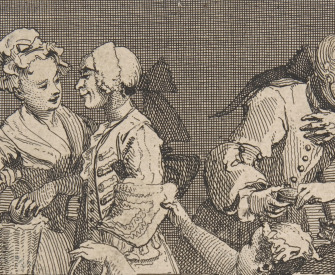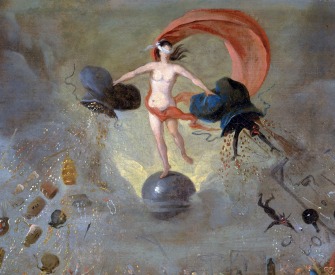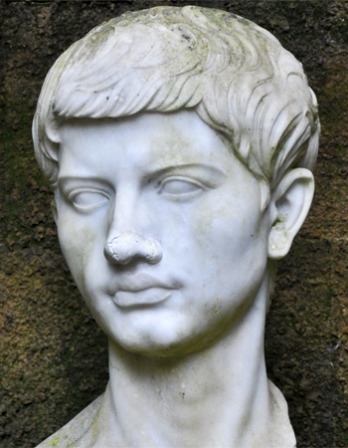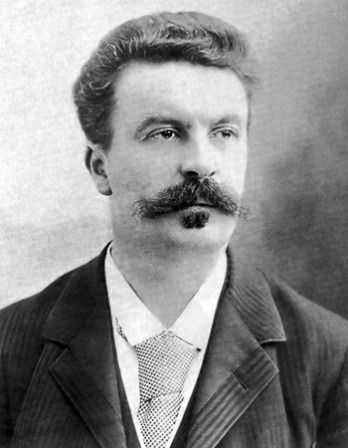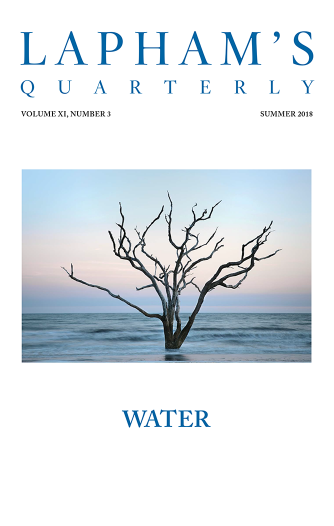Assuming that the beginning of motion belongs to God, but that all things move spontaneously or casually according to the impulse which nature gives, the vicissitudes of day and night, summer and winter, will be the work of God inasmuch as he, in assigning the office of each, appointed a certain law, namely, that they should always with uniform tenor observe the same course, day succeeding night, month succeeding month, and year succeeding year.
But as at one time, excessive heat combined with drought burns up the fields; at another time excessive rains rot the crops, while sudden devastation is produced by tempests and storms of hail, these will not be the works of God, unless insofar as rainy or fair weather, heat or cold, are produced by the concourse of the stars and other natural causes. According to this view, there is no place left either for the paternal favor or the judgments of God. If it is said that God fully manifests his beneficence to the human race, by furnishing heaven and earth with the ordinary power of producing food, the explanation is meager and heathenish, as if the fertility of one year were not a special blessing, the penury and dearth of another a special punishment and curse from God. But as it would occupy too much time to enumerate all the arguments, let the authority of God himself suffice. In the Law and the Prophets, he repeatedly declares that as often as he waters the earth with dew and rain, he manifests his favor, that by his command heaven becomes hard as iron, the crops are destroyed by mildew and other evils, that storms and hail, in devastating the fields, are signs of sure and special vengeance. This being admitted, it is certain that not a drop of rain falls without the express command of God. David, indeed, extols the general providence of God in supplying food to the young ravens that cry to him, but when God himself threatens living creatures with famine, does he not plainly declare that they are all nourished by him, at one time with scanty, at another with more ample measure? It is childish to confine this to particular acts, when Christ says, without reservation, that not a sparrow falls to the ground without the will of his Father. Surely if the flight of birds is regulated by the counsel of God, we must acknowledge with the prophet that while he “dwells on high,” he “humbles himself to behold the things that are in heaven and in the earth.”
I affirm in general that particular events are evidences of the special providence of God. In the wilderness God caused a south wind to blow and brought the people a plentiful supply of birds. When he desired that Jonah should be thrown into the sea, he sent forth a whirlwind. Those who deny that God holds the reins of government will say that this was contrary to ordinary practice, whereas I infer from it that no wind ever rises or rages without his special command. In no way could it be true that “he makes the winds his messengers, and the flames of fire his ministers”; that “he makes the clouds his chariot and walks upon the wings of the wind,” did he not at pleasure drive the clouds and winds and therein manifest the special presence of his power. In like manner, we are elsewhere taught that whenever the sea is raised into a storm, its billows attest the special presence of God. “He commands and raises the stormy wind, which lifts up the waves…He makes the storm a calm, so that the waves thereof are still.”
From Institutes of the Christian Religion. In the book of Genesis, God grants humans dominion over all of nature. According to Institutes—written in Latin and first published in Basel—this divine mandate extends to every area of life. Two decades later, while advancing the Protestant revolution in Geneva, Calvin published a commentary on Genesis in which he urged greater restraint: “We possess the things God has committed to our hands on the condition that, being content with a frugal and moderate use of them, we should take care of what shall remain.”
Back to Issue

